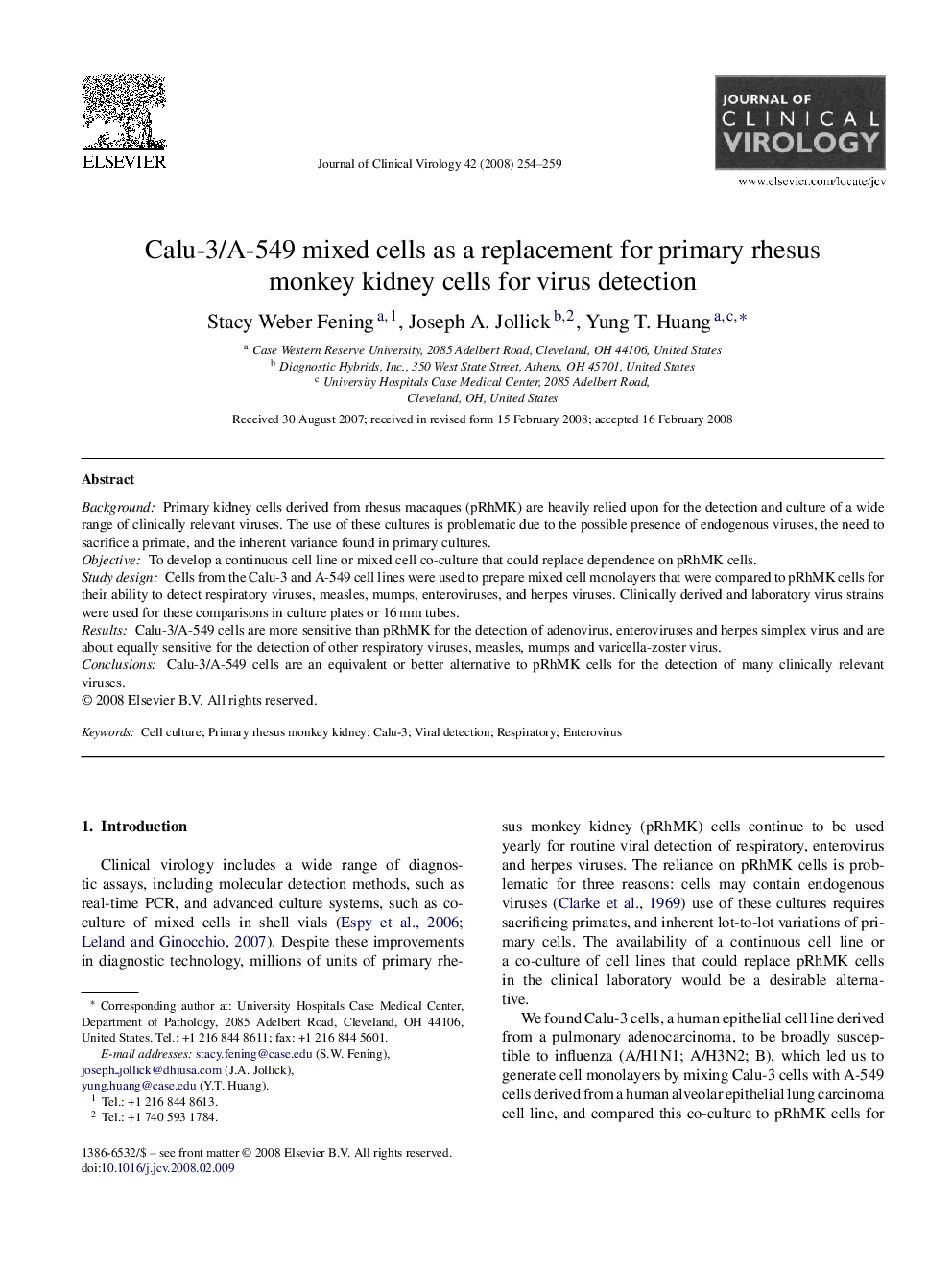| Article ID | Journal | Published Year | Pages | File Type |
|---|---|---|---|---|
| 3370646 | Journal of Clinical Virology | 2008 | 6 Pages |
BackgroundPrimary kidney cells derived from rhesus macaques (pRhMK) are heavily relied upon for the detection and culture of a wide range of clinically relevant viruses. The use of these cultures is problematic due to the possible presence of endogenous viruses, the need to sacrifice a primate, and the inherent variance found in primary cultures.ObjectiveTo develop a continuous cell line or mixed cell co-culture that could replace dependence on pRhMK cells.Study designCells from the Calu-3 and A-549 cell lines were used to prepare mixed cell monolayers that were compared to pRhMK cells for their ability to detect respiratory viruses, measles, mumps, enteroviruses, and herpes viruses. Clinically derived and laboratory virus strains were used for these comparisons in culture plates or 16 mm tubes.ResultsCalu-3/A-549 cells are more sensitive than pRhMK for the detection of adenovirus, enteroviruses and herpes simplex virus and are about equally sensitive for the detection of other respiratory viruses, measles, mumps and varicella-zoster virus.ConclusionsCalu-3/A-549 cells are an equivalent or better alternative to pRhMK cells for the detection of many clinically relevant viruses.
